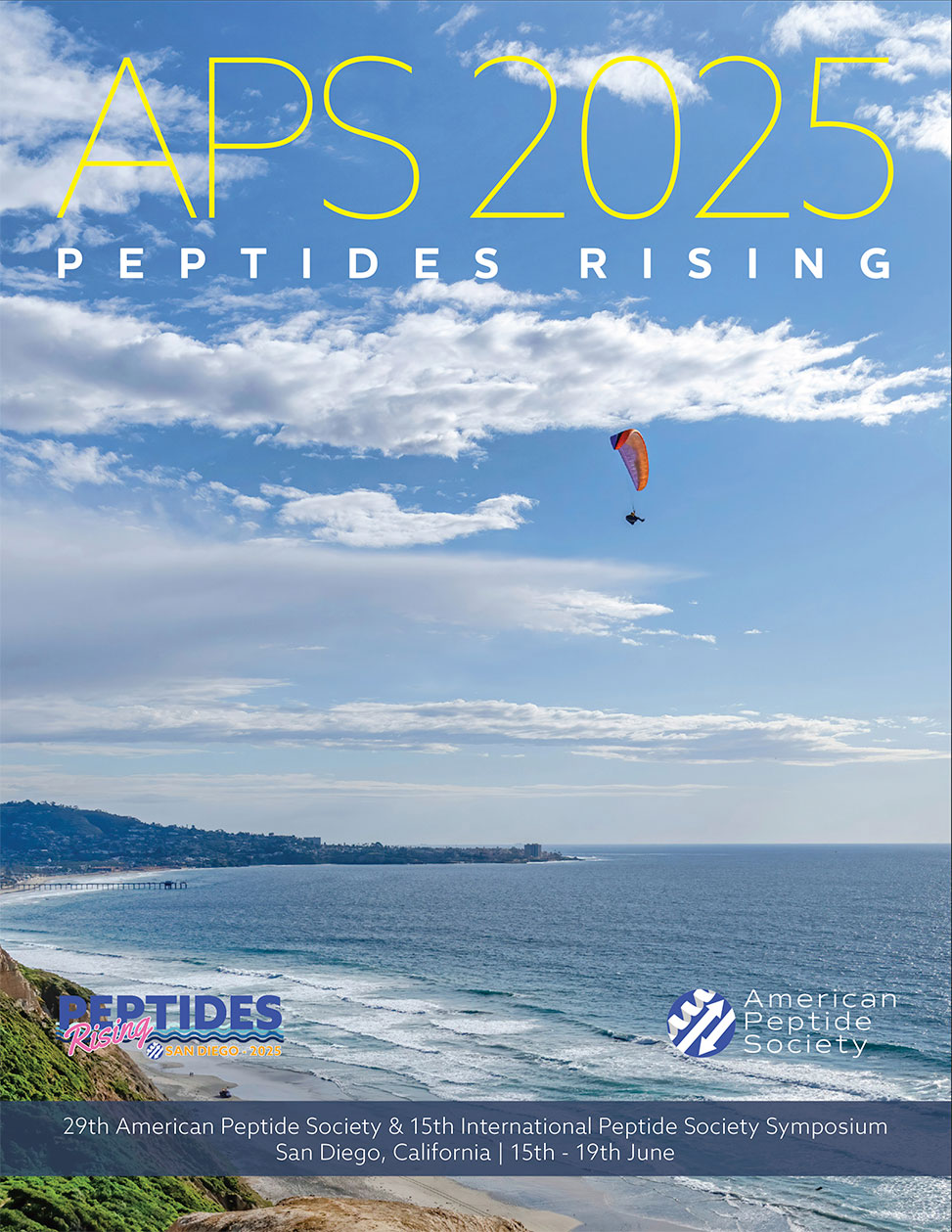Welcome to San Diego!
Welcome onsite to the 29th American Peptide Symposium and the 15th International Peptide Symposium, live from the stunning Sheraton San Diego Hotel & Marina! The energy is high as we have gathered from around the globe to celebrate breakthrough science, forge new connections, and elevate the world of peptides like never before.
Our theme, "Peptides Rising", comes alive through a phenomenal lineup of speakers — from legendary pioneers to emerging innovators — all pushing the boundaries of what's possible in peptide research and application. We are honored to feature keynote talks from Dame Margaret Brimble of the University of Auckland and Scott Miller of Yale University, who will lead us into a week of inspiration, innovation, and insight.
Get ready for an unforgettable week of science, collaboration, and community. We’re so glad you’re here!
Today's Sessions
Session 1
Session 1, "Strategies for Membrane Permeability or Oral Bioavailability" was a powerhouse of innovation, exploring the frontier of how we deliver peptides effectively across biological barriers.
Expertly chaired by Jayanta Chatterjee, Indian Institute of Science, and Ikuhiko Nakase, Osaka Metropolitan University, the session brought together leading minds tackling one of the most critical challenges in peptide therapeutics: getting molecules where they need to go.
John Gleeson, Merck, shared how validated intestinal cell models are guiding oral peptide formulation design — a vital step in translational development.
Severin Schneebeli, Purdue University, illuminated the molecular mechanisms of permeation enhancers in oral delivery systems.
Laura M. Poller, ETH Zürich, our first Young Investigator speaker, presented compelling work on collagen cross-linking and the sequence selectivity of LOXL2.
Marcos Pires, University of Virginia, introduced a systematic framework for probing how structural edits affect accumulation into Mycobacteria, with implications for infectious disease treatment.
Joshua Kritzer, Tufts University, wrapped the session with exciting chemical biology strategies for measuring intracellular drug delivery.
Each talk brought clarity, energy, and momentum to the field — a testament to the interdisciplinary spirit and translational goals of modern peptide science.
Session 2
We continued an extraordinary opening day with Session 2, exploring the incredible potential of bioactive peptides in drug discovery, disease modulation, and prebiotic chemistry.
Chaired by Mike Bertucci, Lafayette College, and Kalyaneswar Mandal, TIFR Hyderabad, the session featured a diverse range of perspectives:
Michelle Arkin, UCSF, opened with insights into peptide/protein complexes as models for understanding protein–protein interactions—a foundational step toward novel therapeutics.
Jaehoon Yu, CAMP Therapeutics, presented α-helical amphipathic peptides as promising drug candidates for sarcopenia, emphasizing mitochondrial targeting strategies.
Caroline Almeida, a Young Investigator from the Federal University of Rio de Janeiro and UC Merced, shared compelling work on transcriptional regulation in fungal biofilms using plant defensins.
David Lawrence, UNC, highlighted the versatility of peptides—from delivery vectors to molecular sentinels—in next-generation therapeutics.
Jun Ohata, NC State, closed the session with a fascinating perspective on solid-state reactivity of dipeptides and their role in prebiotic polypeptide synthesis.
These talks showcased the vibrant creativity and deep rigor driving peptide science forward. A powerful blend of innovation, inspiration, and global collaboration.



